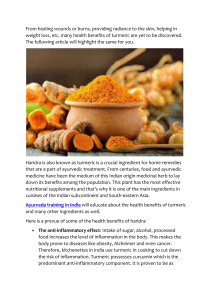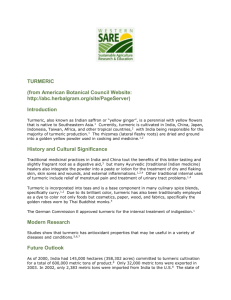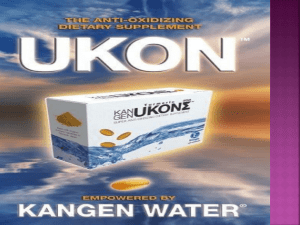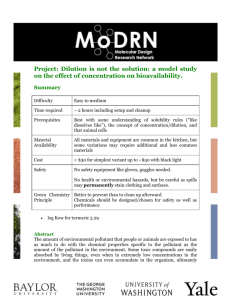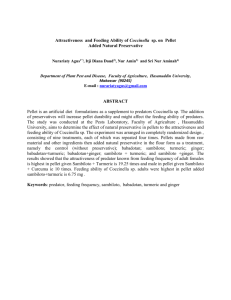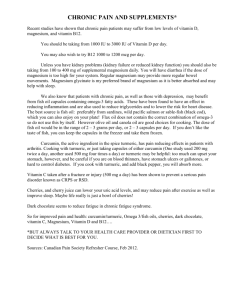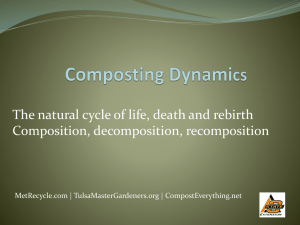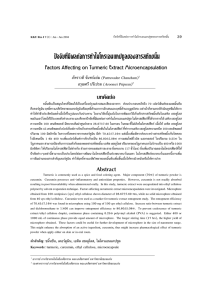putis_usman_chap1_reviewed
advertisement
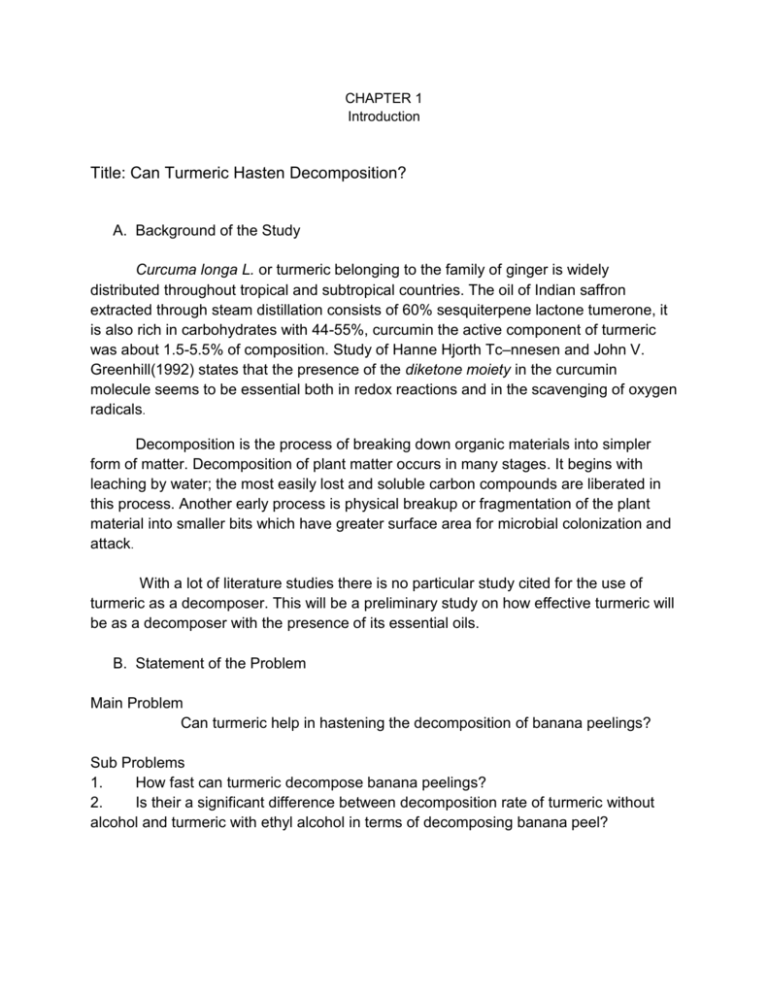
CHAPTER 1 Introduction Title: Can Turmeric Hasten Decomposition? A. Background of the Study Curcuma longa L. or turmeric belonging to the family of ginger is widely distributed throughout tropical and subtropical countries. The oil of Indian saffron extracted through steam distillation consists of 60% sesquiterpene lactone tumerone, it is also rich in carbohydrates with 44-55%, curcumin the active component of turmeric was about 1.5-5.5% of composition. Study of Hanne Hjorth Tc–nnesen and John V. Greenhill(1992) states that the presence of the diketone moiety in the curcumin molecule seems to be essential both in redox reactions and in the scavenging of oxygen radicals. Decomposition is the process of breaking down organic materials into simpler form of matter. Decomposition of plant matter occurs in many stages. It begins with leaching by water; the most easily lost and soluble carbon compounds are liberated in this process. Another early process is physical breakup or fragmentation of the plant material into smaller bits which have greater surface area for microbial colonization and attack. With a lot of literature studies there is no particular study cited for the use of turmeric as a decomposer. This will be a preliminary study on how effective turmeric will be as a decomposer with the presence of its essential oils. B. Statement of the Problem Main Problem Can turmeric help in hastening the decomposition of banana peelings? Sub Problems 1. How fast can turmeric decompose banana peelings? 2. Is their a significant difference between decomposition rate of turmeric without alcohol and turmeric with ethyl alcohol in terms of decomposing banana peel? C. Hypothesis Turmeric cannot help in decomposing the banana peelings faster. D. Objectives to determine if turmeric can help in making the decomposition process faster to compare the decomposition rate of the banana peelings when placed on alcohol and alcohol with turmeric to prove that turmeric has a potential in making the decomposition process faster E. Significance of the Study This study might help on the problems of pollution in our environment. Making biodegradables decay faster can lessen the garbage present in our society and this might help on making the soil more efficient for planting. Also, hastening decomposition process means hastening the production of biogas. However, the chance of producing biogas cannot be determined for now because it might be possible that biogas will not be produced in the experiment. F. Scope and Limitations of the Study This study covers the following scopes: the effect of turmeric on degrading banana peelings set-ups for this study (a) ethyl alcohol (b) ethyl alcohol with less turmeric and (c) ethyl alcohol with more turmeric. We will be using Ripe, Raw Lacatan Banana peels for this experiment. Banana peels will be place on each set-up and will be examined for 6-7 weeks. G. Definition of Terms Turmeric - A bright yellow aromatic powder obtained from the rhizome of a plant of the ginger family, used for flavoring and coloring in Asian cooking and formerly as a fabric dye. Redox - A chemical reaction involving the transfer of one or more electrons from one reactant to another; also called oxidation-reduction reaction. Banana Peelings – this will be the one to be decomposed and observed. Curcumin – it is a yellow pigment present in herbs especially turmeric; used as an ingredient in making spices which is said to hasten the decomposition process. Essential Oils - A natural oil typically obtained by distillation and having the characteristic fragrance of the plant or other source from which it is extracted.
